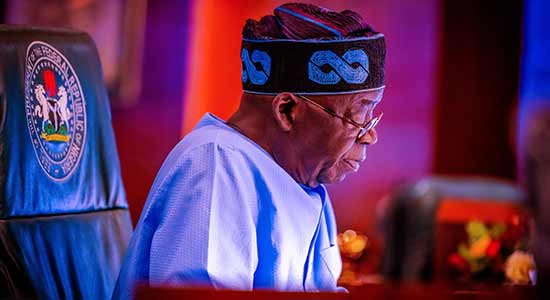The Nigerian government should step up efforts to boost the country’s contributions to peace and security across Africa, the International Crisis Group (ICG), has urged.
In a new 20-page report titled “Restoring Nigeria’s Leadership for Regional Peace and Security”, published on its website on December 11, the ICG acknowledges Nigeria’s long-time role as a major force for decolonization, peace and security in Africa.
The Brussels-based conflict prevention and peacebuilding organisation, however, observes that over the past one and a half decades, the country’s clout diminished, reducing its contributions to peace and security efforts across the continent.
The report identifies factors that caused Nigeria’s diplomatic retreat. They include lack of policy clarity and consistency, distracted leadership particularly under Presidents Umaru Yar’Adua and Muhammadu Buhari, and acute economic and security challenges, which reduced attention and resources for engagements abroad.
The Crisis Group report asserts that perennial under-funding of the Ministry of Foreign Affairs, Nigeria’s diplomatic missions abroad, as well as inadequate presence and participation in the African Union (AU) have also impaired the country’s diplomacy.
It also argues that the response to the July 2023 coup in Republic of Niger, which prompted Burkina Faso, Mali, and Niger to break away from the Economic Community of West African States (ECOWAS) and form their Alliance des Etats du Sahel (AES), has raised further challenges in Nigeria’s sphere of influence.
The report says President Bola Tinubu’s administration “appears conscious of the country’s geopolitical slippage and eager to reverse the trend”, noting that the Foreign Affairs Ministry, headed by Yusuf Tuggar, has tried to reset the foreign policy strategy on four pillars: democracy, development, demography and diaspora (Tinubu’s 4D doctrine).
It further observes that Nigeria’s ambitions to join the G20 and BRICS and also to gain a permanent seat on the United Nations Security Council when eventually reformed seem to be gaining support and endorsements.
Crisis Group recognises that the government’s “objectives are laudable, but the challenges are steep”, and offers several recommendations for further rejuvenating Nigeria’s influence on peace and security efforts in the region and the continent.
The organisation calls for further clarification of the country’s foreign policy objectives, better funding of the Foreign Affairs Ministry, and urgent appointment of ambassadors to Nigeria’s embassies abroad.
Crisis Group also urges the Nigerian government to “navigate the turbulence in West Africa by working with other member states to reform ECOWAS and find common ground on security and economic cooperation” with the AES states.
The ICG advises the government to strengthen its influence in the AU, including by urgently designating an experienced, knowledgeable ambassador to the union, armed with “a clear mandate and appropriate resources.”

 Join Daily Trust WhatsApp Community For Quick Access To News and Happenings Around You.
Join Daily Trust WhatsApp Community For Quick Access To News and Happenings Around You.


